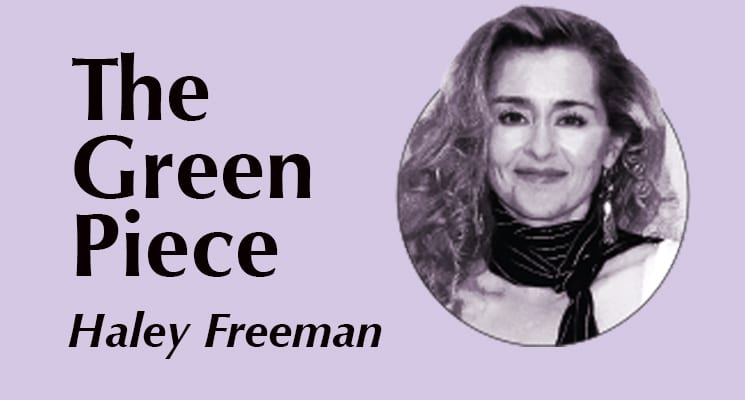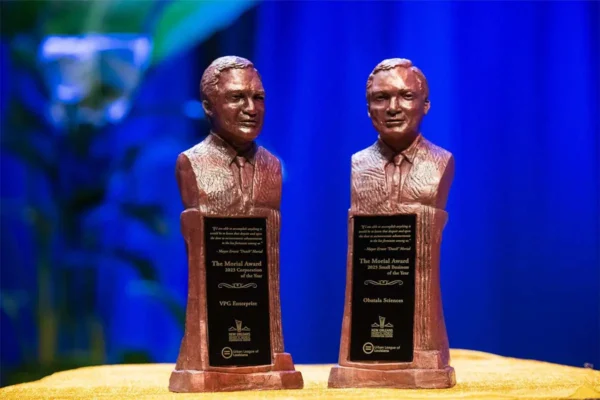by Haley Wilson-Freeman
Twenty years ago, I attended a conference in Dallas, Texas. At the gala dinner, 2,000 selfie-worthy filet mignon steaks were plated and served to attendees. And as is customary, they were all prepared medium rare. Seated in the back of the room, I watched as frantic waiters piled serving carts with untouched plates destined for return to the kitchen. The meat was simply too rare for many people’s taste. In that moment, I remember feeling most sorry for the cows who gave their lives for a meal no one was going to eat. But I also envisioned a distraught event planner pacing somewhere behind the scenes, wondering how the choice to serve Texas’s most acclaimed agricultural export had gone so terribly wrong.
If this same scenario played out today where I live in California, I can imagine that an angry mob of vegans, vegetarians and animal rights activists would surely rise up in outrage. It begs the question: in an age of increasing dietary diversity, what’s a meeting planner to do?
To begin, we’ll briefly examine some of today’s prevailing dietary trends.
Vegetarian. It may be easier to explain a vegetarian diet by listing what vegetarians don’t eat: animal flesh of any kind, including beef, pork, poultry, fish, shellfish and insects (ew). In general, vegetarians still eat eggs and dairy products, and they do not exclude items like caffeine and processed foods. However, conventional vegetarianism has given way to many sub-groups.
Lacto-ovo-vegetarian. These are people who do not eat animal flesh of any kind, but do eat eggs and dairy products.
Pescatarian. Pescatarians abstain from eating all meat and animal flesh with the exception of fish.
Vegan. This is not only a way of eating, it is a philosophy that rejects the commodity status of animals. Vegans abstain from the use of all animal products and the consumption of meat of any kind, as well as eggs, dairy products and processed foods containing animal-derived ingredients.
Raw Food. Raw foodists eat only unprocessed vegan foods that have not been heated above 115 degrees Fahrenheit (46 degrees Celsius), in keeping with a belief that foods cooked above this temperature have lost a significant amount of their nutritional value and are harmful to the body.
Flexitarian. This term refers to people who eat a mostly vegetarian diet, but occasionally eat meat.
Paleolithic (Paleo). This dietary philosophy asserts that we are healthier if we eat like our prehistoric ancestors, who were hunter-gatherers. This is a high-protein, high-fiber eating plan that includes lean meats, fish, fruits and vegetables, and prohibits processed foods, wheat and other grains, and dairy.
Gluten-free (GFD). This diet excludes the protein gluten, which is found in grains such as wheat, barley, rye, and a cross between wheat and rye called triticale. For the most part, a person who eats GFD may consume fruits and vegetables, legumes seeds and nuts, eggs, diary and meats. Since gluten lurks in many processed foods, most gluten-free eaters avoid them.
Macrobiotic. This eating plan includes unprocessed vegan foods, such as whole grains, fruits, and vegetables, with an emphasis on Asian vegetables and sea vegetables. It also allows the occasional consumption of fish and avoids refined sugars and oils.
Overwhelmed? Here’s a universally winning solution championed by Wolfgang Puck Catering that is also a triumph for the environment: vegetable-forward meals. It’s a new way of designing healthful and balanced catering options that feature vegetables rather than proteins, while also minimizing or removing processed starches. It’s also good for the environment, since a recent study by Bard College in upstate New York found that red meat requires 28 times more land to produce than pork or chicken, 11 times more water and results in five times more carbon emissions. (Sorry, Texas.)
Andrew Swanson, a Dallas-based regional chef for Wolfgang Puck, told Meetings-Conventions.com that sustainable sourcing is an essential part of his organization’s practice. For instance, he is utilizing produce from a veteran-owned urban farming business called “Eat the Yard.” Owners Stephen Smith and James Jeffers returned from duty in the Middle East and took solace in gardening. They eventually tore up their own front yards to plant produce, and as demand for their sustainably-grown vegetables increased, they expanded their cultivation efforts to residential and commercial spaces, community gardens and rooftops.
“Let food be your medicine and medicine be your food.” — Hippocrates
Haley Freeman is a passionate advocate for the environment and sustainable business practices. Contact her at www.linkedin.com/in/haley-freeman-378b8413/.
This column originally appeared in the May/June issue of Exhibit City News, p. 14. For more pictures and original layout, visit https://issuu.com/exhibitcitynews/docs/may-jun_ecn2018






























